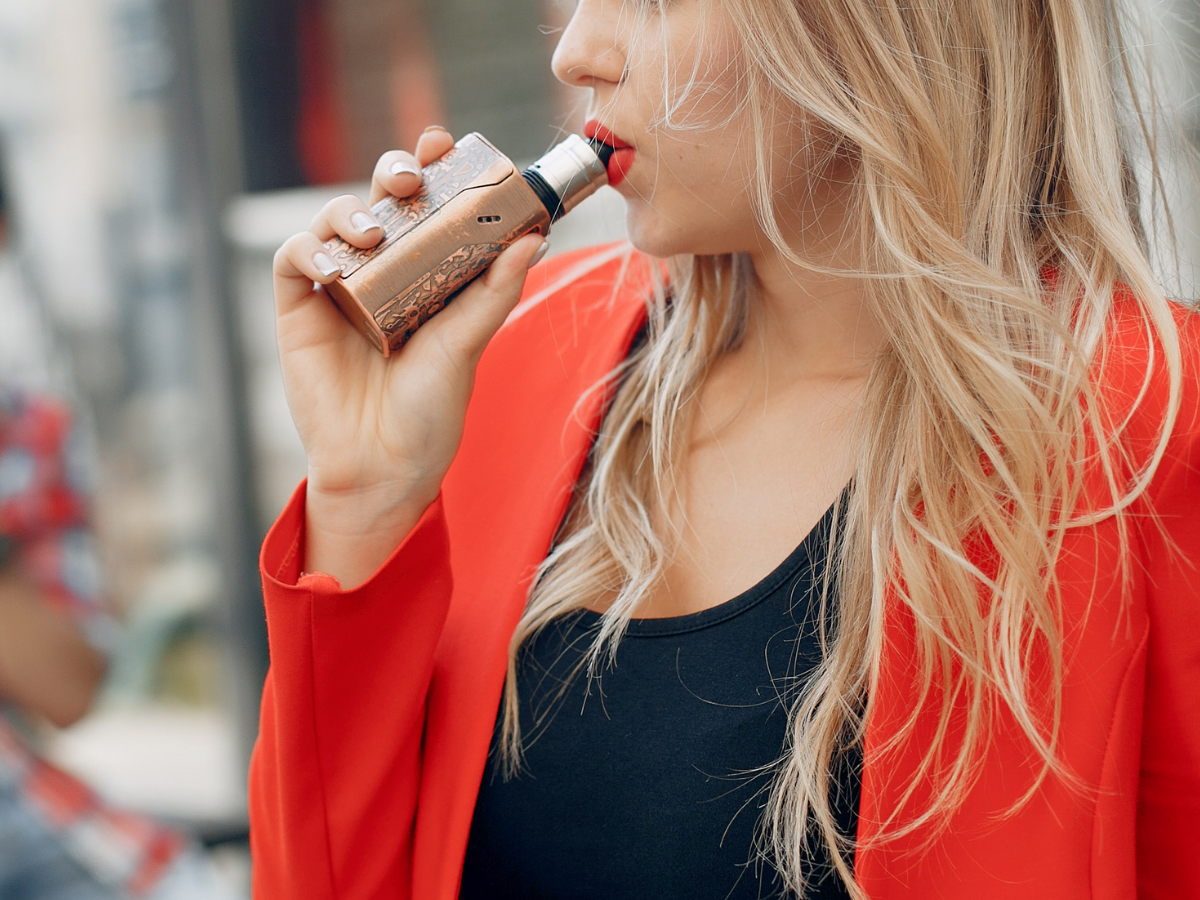What Vaping Does To Your Client’s Skin

Dermatologist Dr Shammi Theesan explains just how detrimental vaping is from a dermatological perspective.
As an esteemed dermatologist with decades of expertise, I’ve keenly observed the shifting landscape of skincare trends. Today, I’m here to delve into a phenomenon that’s captured widespread interest: vaping.
Vaping has been heralded as a modern alternative to traditional smoking, yet beneath its sleek exterior lies a complex story with implications far beyond mere nicotine addiction. Recent studies have unearthed a concerning truth about vaping, one that extends beyond its respiratory effects to impact the very canvas of our skin.
Let’s unravel this narrative. Vaping isn’t just about exhaling vapour; it’s intricately linked to a host of dermatological dilemmas, from premature aging to stubborn acne. First, consider acne – that timeless adversary of clear skin. Vaping introduces nicotine into the bloodstream, a compound known for its vascular havoc, igniting inflammation pathways, and fostering an environment ripe for acne eruptions. Furthermore, the surge in oil production induced by vaping can lead to congested pores and persistent blemishes, reminiscent of adolescent woes.

Then, there’s rosacea – a condition as enigmatic as it is vexing. Vaping, it seems, is no friend to the rosacea afflicted. The chemical cocktail found in e-cigarettes serves to stoke the fires of inflammation, exacerbating redness and discomfort for those grappling with this chronic complexion conundrum.
And let’s not forget the pursuit of eternal youth. Vaping poses a formidable adversary to the skin’s natural defences. The noxious compounds within e-cigarettes sabotage collagen and elastin, the stalwart sentinels of skin firmness and resilience. Coupled with nicotine’s vasoconstrictive tendencies, this assault can leave one with a complexion prematurely aged, etched with the telltale signs of fine lines and wrinkles.
But fear not, for there are remedies to be found amidst this tumultuous tale. Prioritise hydration, embrace a rainbow of fruits and vegetables, shield your skin with diligent sunscreen application, and curate a skincare regimen tailored to your unique needs.
Now, let’s address the proverbial elephant in the room: the perilous chemical cocktail lurking within vaping products. Nicotine, formaldehyde, acrolein, propylene glycol, diacetyl – these are but a few of the dubious constituents found within the vaporous veil. Understanding the risks inherent in these compounds is the first step towards making informed choices about your skincare and overall health.
In essence, let us approach vaping with discernment and prudence, recognising its potential impact on our skin’s vitality. For those guiding clients or patients through skin-related concerns stemming from vaping, it’s crucial to gently encourage them to explore the path of quitting this habit.
Quitting vaping isn’t merely about breaking free from a habit; it’s about reclaiming control over your skin’s health and wellbeing. By embarking on this journey, individuals can unlock a myriad of benefits, including a clearer complexion, reduced risk of premature aging, and improved overall skin vitality.
When guiding others towards this decision, presenting the benefits of quitting alongside a realistic plan tailored to their health goals can be instrumental. By emphasising the tangible improvements they can expect to see in their skin’s appearance and health, individuals are more likely to feel motivated and empowered to take action.
The post What Vaping Does To Your Client’s Skin appeared first on SPA+CLINIC.
